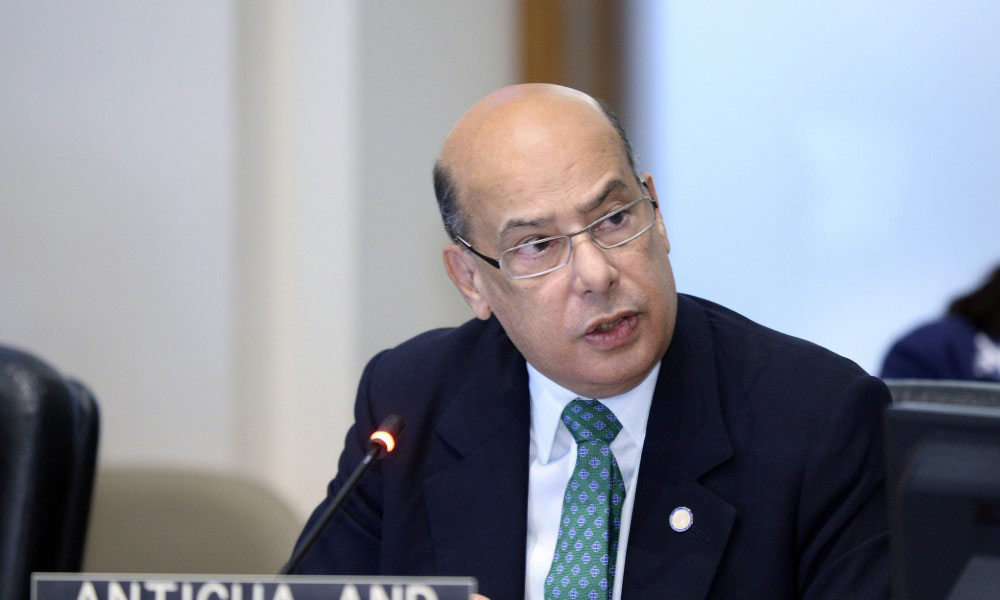Antigua and Barbuda’s Ambassador to the United States Sir Ronald Sanders has called on international financial institutions and wealthy governments to do more for the people of Haiti, following the recent devastating earthquake that has ravaged the country, leaving thousands dead, injured and homeless.
According to a release from the Embassy of Antigua and Barbuda in Washington, Sanders made the call during an address on behalf of the CARICOM Group to the Permanent Council of the Organization of American States (OAS) in Washington, DC, yesterday.
“We in CARICOM, urge international development and finance institutions and governments to help to the fullest extent of their capabilities, making sure that assistance is provided to the needy and vulnerable in a fair and equitable manner,” he said.
Sanders, who is also the Chair of the CARICOM group at the OAS, spoke after the members of the Council had heard from the Prime Minister of Haiti Ariel Henry, who gave an account of conditions following an earthquake last Saturday that killed almost 2,000 people, injured 10,000 and left about 40,000 homeless.,
Sanders, the release said, underscored CARICOM’s announcement of the “urgent need for the entire global community to respond swiftly and meaningfully to the dire situation of the Haitian people within a framework of transparency and accountability.”
According to the release, Sanders said the CARICOM Group was “greatly troubled” that the misery caused by the disaster was intensified by tropical storm Grace, which generated widespread flooding and landslides. “When this double calamity occurred over the last few days in Haiti, the country was already confronting a humanitarian crisis, including a grave strain on its medical facilities that were overwhelmed by several essential demands, including coping with the COVID-19 pandemic,” he said.
The Antigua and Barbuda diplomat is said to have then outlined steps that CARICOM has already taken to aid Haiti—disclosing that the Caribbean Catastrophe Risk Insurance Facility (CCRIF) has agreed to pay out $40 million to Haiti—with the first instalment of $15 million to be paid to the government early next week, and the remaining $25 million to be delivered within the next 14-days.
Sanders the release said, noted the significance of that payment to Haiti, which he said represents the largest one-time payment from CCRIF to date. He further noted that since its inception in 2007, CCRIF has made five payments to Haiti, in the sum of $78.3 million, which he said is the largest single portion of the benefits paid out to its 22 subscribing states.
The release goes on to say Sanders revealed that the Caribbean Development Bank has given support to Haiti by paying, in whole or in part, its insurance premiums for earthquakes, tropical cyclones, and excessive precipitation.
The press release added that the OAS Permanent Council was also informed that the Caribbean Disaster Emergency Management Agency (CDEMA) is deploying a team to provide operational support to the National Emergency Opera-tions Centre in Port-Au-Prince, and that several organs of CDEMA are alert and activated, awaiting indications from Haitian authorities that they are ready to receive teams of specialist relief groups.
Sanders added that while “CARICOM is doing all in its power with its limited resources to respond to the crucial emergency needs of the Haitian people, the international development and financial banks and wealthy governments” have “to turn words to action” as “the Hattian people have suffered enough.”






